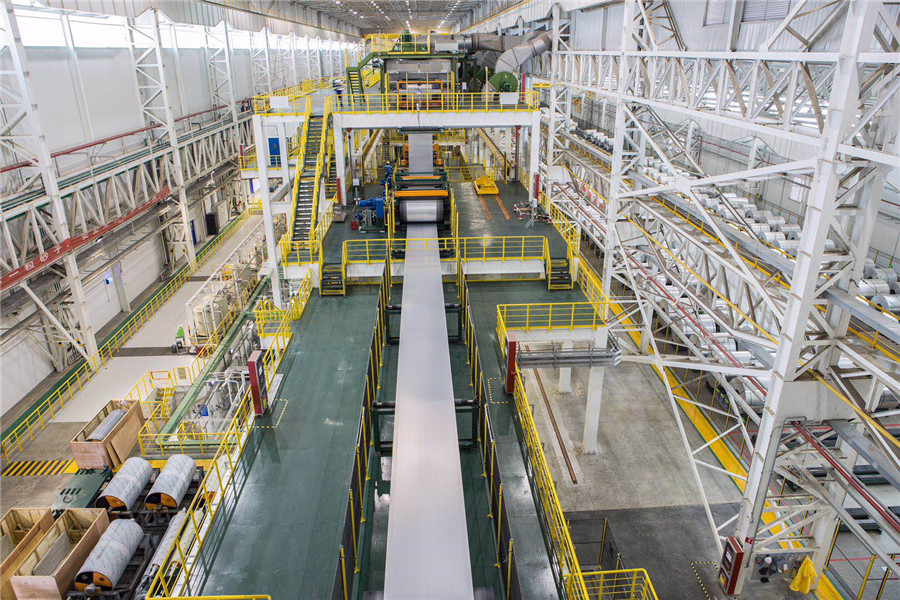US aluminum manufacturer shows its mettle with China investment

Novelis Inc, a United States-based company specializing in industrial aluminum, is confident in the potential of China's automotive market despite its sales dip last year, expecting rising demand from the country's growing number of new energy vehicles and tougher rules on gasoline car emissions.
Steve Fisher, president and CEO of the Atlanta-headquartered company, said the adoption of aluminum products in vehicles will grow faster in the coming years in China than in the US and Europe, which are currently its top markets.
"Specifically, in our case for aluminum, we see this market growing faster than other markets in the rest of the world," said Fisher.
"We're talking about the overwhelming commitment that the government has to the environment here in China and pushing for new energy vehicles, which is going to drive a lot of growth for lightweight materials."
Currently, the automotive sector makes up roughly 20 percent of Novelis's business, and China accounts for 20 percent of that.
In China, there are 38 vehicle models featuring Novelis aluminum. Globally, there are 225 models.
"In China specifically, we are focused on auto," said Fisher, adding that the company decided on local production because it sensed an opportunity in the world's largest automotive market.
Novelis's plant, in Changzhou, Jiangsu province, started to localize its products in 2014. With an annual capacity of 100,000 metric tons, it has been serving carmakers ranging from FAW-Volkswagen and Chery Jaguar Land Rover to SAIC Motor and startup Nio. The momentum of China's new energy vehicle market is becoming another driver of Novelis' business in the country. Last year, more than 1.2 million new energy cars were sold, accounting for about half of the world's total. The China Passenger Car Association expects the figure to rise to 1.7 million this year.
"We see a tremendous amount of new energy vehicles coming into the marketplace and when you think about that there is going be a correlation to lightening those vehicles to get either distance or put more features and content into the vehicle itself," he said.
James Liu, managing director of Novelis China, said China's dual credit policy, which requires carmakers to produce a certain quota of new energy vehicles and also to meet the 2020 fuel consumption standard of five liters per 100 kilometers, will spur faster and wider adoption of aluminum products.
Based on that judgment, the carmaker started a project late last year to expand its Changzhou plant with an investment of $180 million.
The annual capacity of the plant will be doubled to 200,000 tons when the project is completed in 2020.
"This investment will allow us to better serve our automotive customers by providing world-class manufacturing capabilities, products that meet global quality standards, and innovative solutions to make vehicles lighter, safer and stronger," said Liu.
Despite a fall in China's vehicle sales last year, Novelis remains bullish about the market.
"It certainly will not affect our investment plans, because we're looking at this on a long-term basis," said Fisher.
"If there's a short-term pullback in the market, you know we're well positioned on a global basis to deal with that.
"But, certainly, we see the tremendous amount of opportunity and growth on a long-term basis. So, it would not deter us from our investment here in China."

